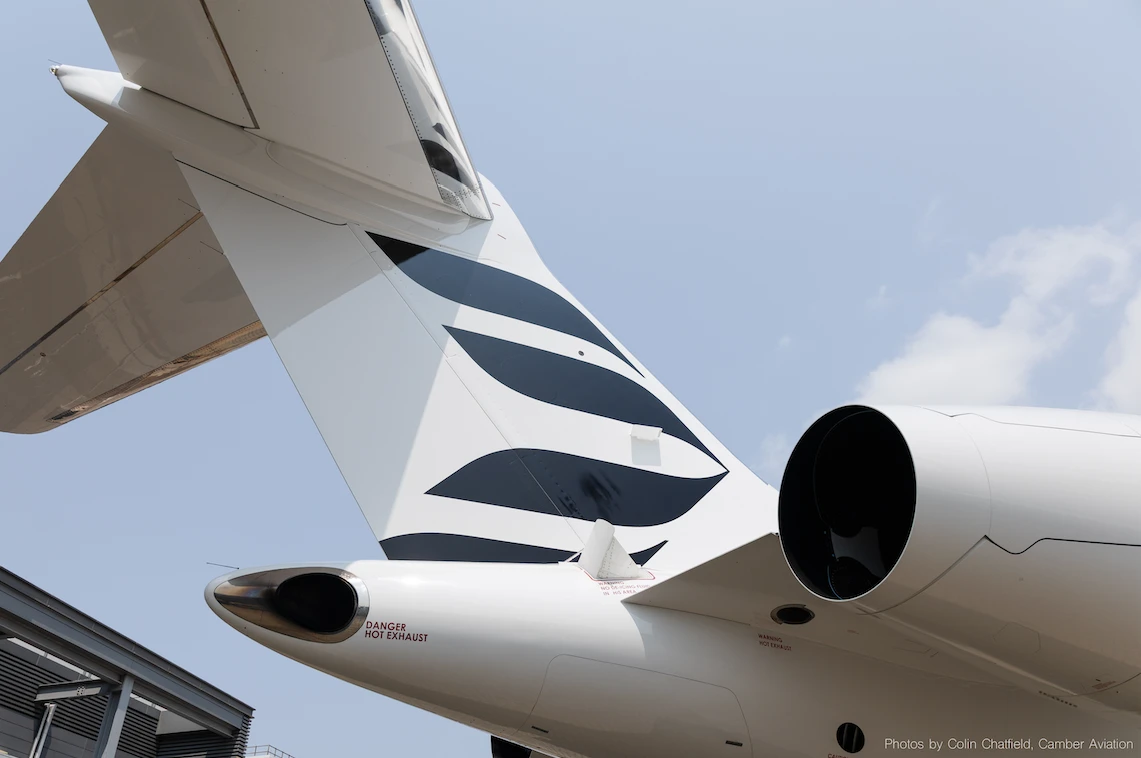The Hong Kong Polo Team Is Bringing Polo Back to Hong Kong
Jan 03, 2017
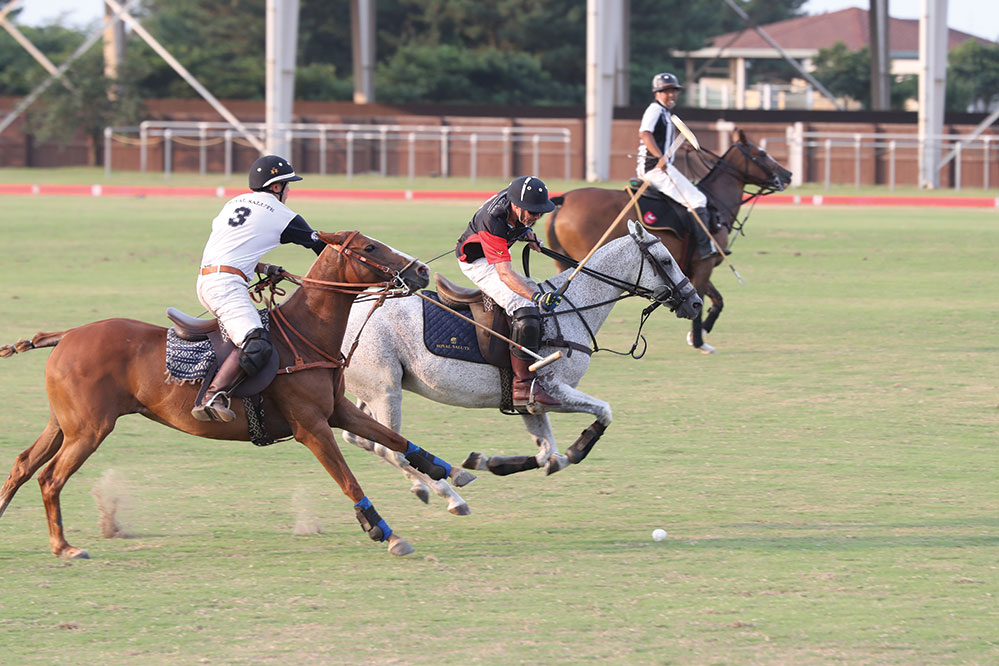
Today, polo might be seen as more of a fairy tale than an actual sport. Utter the word “polo” and the image most likely to pop into the minds of most people is of the shirt rather than sport played on horseback. It’s no wonder. Polo is usually played away from the gaze of the everyman. Along with horse racing and falconry, polo is considered a sport of kings. In the old days, the game required owning a string of polo ponies and an invitation from men of high social rank – royalty included, no doubt.
However, the founder of Asia World Polo, Dave Savage, says it’s a misconception that wealth and social acceptance are still prerequisites to play. “Now, if you can afford a lesson and find someone to play with, you can play. It’s very accessible,” he says. And Savage should know. He began playing polo in his late 30s, after attending a polo match for the first time and seeing and hearing Britain’s Prince Harry “thundering on his horse” and “shouting out at the top of his voice, ‘Take the man. Take the bloomin’ man’.”
Prince Harry and polo made an impression on Savage. He found the game “utterly irresistible” and Prince Harry captivating. “For such a young man at the time, he displayed terrific captaining skills,” Savage says. He was warned that playing the game would be dangerous and expensive, but he persisted in learning, and began playing in tournaments just six months after watching Prince Harry play.
When Savage moved to Hong Kong a few years later, he thought of playing polo as a way to meet new people, but found the city had no polo team. “I decided to set that right,” he says. “I gathered a group of like-minded individuals who played polo or were interested in polo being played in Hong Kong and, together, we spearheaded the Hong Kong Polo Team in 2013.”
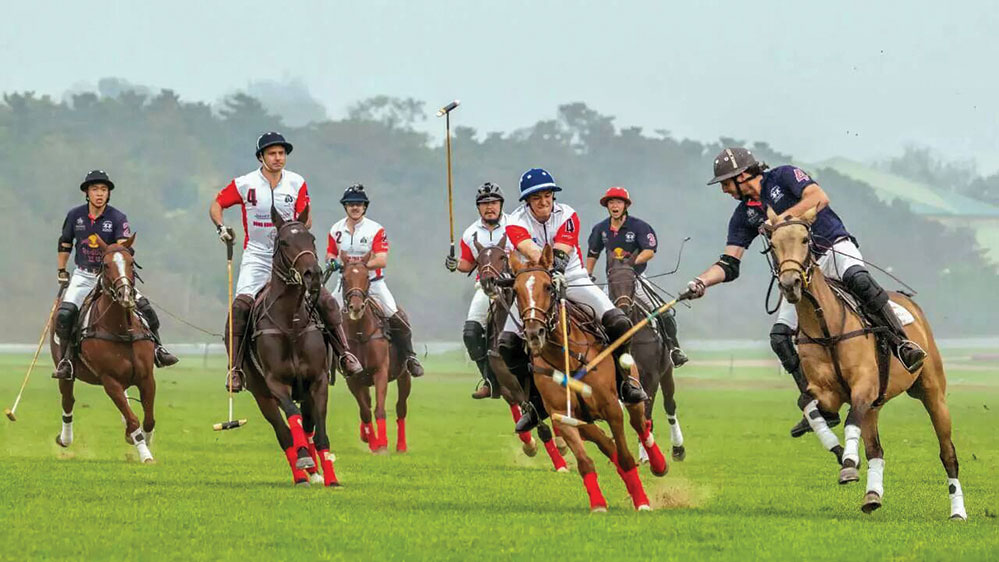
Supporters of the endeavour included watchmaker Jaeger-LeCoultre, Shanghai Tang’s Raphael le Masne de Chermont, Aron Harilela and Simon Ip, now the chairman of the Hong Kong Jockey Club board of stewards, who whipped up more support. Savage likens finding players by word of mouth to “finding a needle in a haystack”. But he was put in touch with Harilela and Le Masne de Chermont and, eventually, with Argentinian banker Patrick Furlong, who is now team captain.
Furlong began playing polo in his youth. When his work brought him to Hong Kong, he was left without teammates. “In most places in Asia, you can find a polo club or a place to play polo but in Hong Kong, I was very surprised and annoyed there wasn’t one,” says Furlong. Captaining a team made up of players that have little time to meet and practise before matches is difficult, but Furlong has some useful players to select his team from. He can choose from a pool of 12.
“Collectively, we have a lot of experience in polo. Aron and Raphael have been playing for many years now, and they have been playing in Europe and France and Asia.
For them, the adjustment to the team is what position to take on and how you gel with the other players,” Furlong says. “It’s a little bit of people-management skills, and understanding skills and strategies of the teams you play against.” Under Furlong’s captaincy, Hong Kong won three of the four international tournaments they contested during last year’s season. “We have done very well in terms of delivering for the team, so there have been very good results over the last two years,” he says.
Le Masne de Chermont says he and his fellow players have a real passion for the game. “The instant I get on a good polo horse, we connect with each other and we become one team,” he says. “It is difficult to describe the excitement of the perfectly matched pair in a fast game. It is close to Nirvana.”
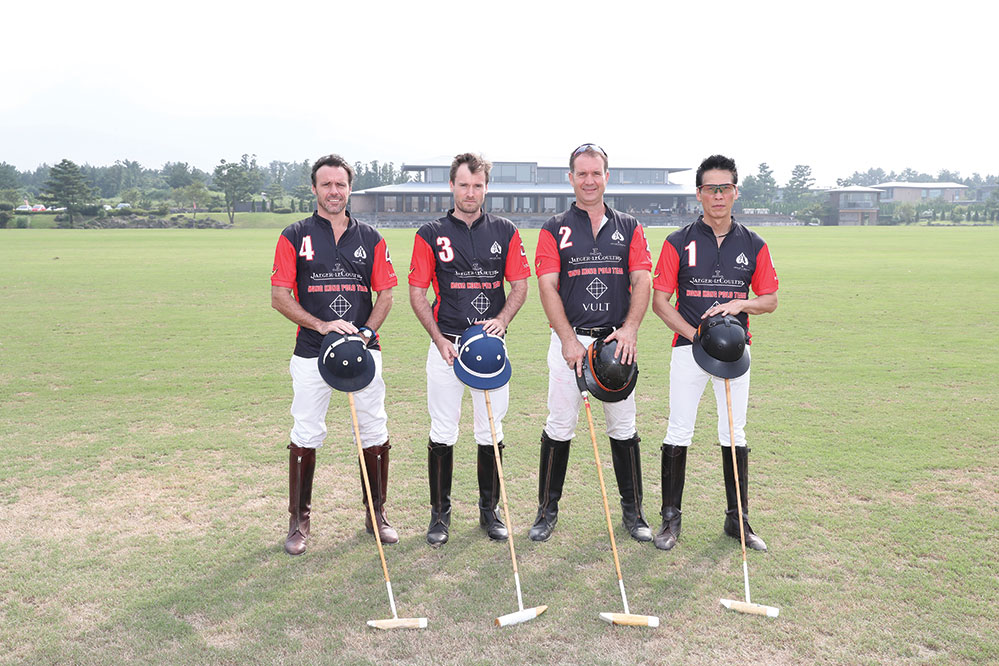
Justin Lau is one of Hong Kong’s youngest players. “Polo is one of the most complicated team sports one could play, and that’s why I love it,” he says. Harilela says polo gets his adrenaline flowing more than any other game. “There is a massive growth in interest in adrenaline sports. Polo fits much more into that category than football and tennis.”
The team are also passionate about spreading the word that polo is back in Hong Kong. The exclusive hashtag of their endeavour is #bringingpolobacktohongkong. Lau is the team’s ambassador to younger potential players in Hong Kong. “Having Justin join has been amazing,” Furlong says. “He brings a lot of enthusiasm to people of his generation that are interested in playing the sport. They see they can do this.”
Says Lau: “Society might relate polo to something pre-modern, but it is also a perfect combination of all the elements every promising young person with dreams aspires to: the speed and thrill of the race, the brotherhood of your team, the socialising with sophisticated people, the love of and connection with animals and, most important, the environmental friendliness and greenness of polo. All young people love this, and what I am doing is just to establish a gateway for them to access this perfect sport.”
The Hong Kong Polo Team comprises various kinds of people and not just men. The Equestrian Federation of Singapore Polo Player of the Year from 2012 to 2015, Lynly Fong, is the only woman, but her singularity matters little to her. “I didn’t even think about it until you asked the question,” says Fong. “I believe I play well off my handicap and just consider myself as another member of the team.”
The team are pleased with the strides they have made over the past few years and are looking forward to the new season. “For the past two years we have been a regular fixture in international polo tournaments,” Furlong says. “The places we’ve been to over the last couple of years are very keen for us to go back to play, because we’ve done really well in the places we’ve played at. They’re stepping up and they want to win, so it’s getting really competitive. Before, the expectations weren’t really high, but we actually did a lot better than what we expected. We’re in it to win it and they’re in it to win it and it makes for great competition.”
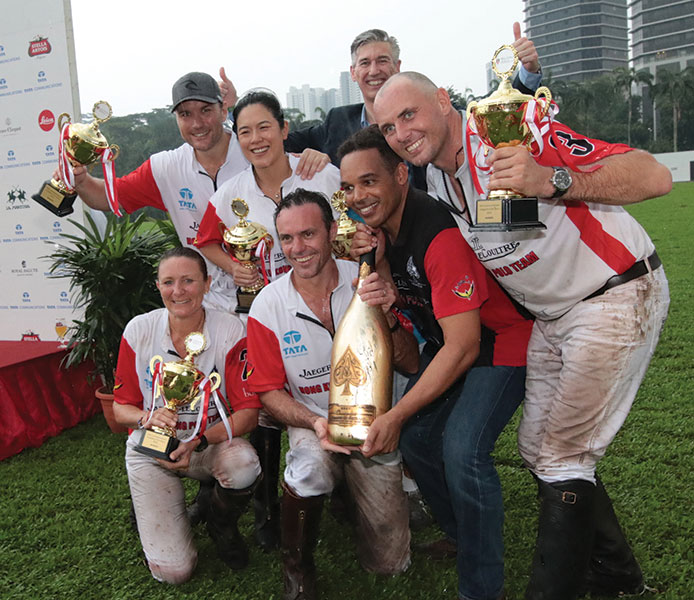
Savage has grand plans, but is taking one step at a time. “The challenges we faced at the beginning still exist, in particular, trying to find a piece of land that we can play polo on,” he says.
“We’ve got some support and we’re envisioning to combine a riding school with The Hong Kong Jockey Club and have an element of polo included in that as well as, potentially, some other field sport so we can make good use of the land and bring it to the community, so it’s available not just to the members but also to the public.”
The new polo ground will probably be in the New Territories, perhaps near the border, Savage says. “We’ve got various options, all up for consideration, and we’re particularly interested in working with The Jockey Club,” he says. “There’s even some suggestions there may be an opportunity to establish a small start-up programme in Macau.”
At the Polo After Dark event held at the Kee Club at the end of November, there was an excellent indication of the support for a permanent ground. The event mixed fun and fundraising, with Macey and Sons staging an auction. The sponsors included the auction house, Jaeger-LeCoultre, Royal Salute whisky and the Macau Roosevelt Hotel.
Polo may be less exclusive a game than it was but the class of goods and services offered by the sponsors of Polo After Dark is a reflection of the cachet still attached to the game. “There are a lot of aspects to this sport that don’t exist with other sports: the luxury, lifestyle aspirations,” Savage says.


















